More On: Lia Thomas
Lia Thomas ripped into women that he claims uses the guise of feminism to push transphobia
A transgender golfer who wants to join the LPGA is 'totally different' from Lia Thomas
A competitor of Lia Thomas says she felt 'extremely uncomfortable' sharing the locker room with her
Lia Thomas is a candidate for the NCAA 'Woman of the Year' Award
Hillary Clinton: Transgenderism shouldn't be the main issue for Democrats
Penn's Thomas and Yale's Henig have both won the Ivy League championship.
Transgender swimmers Lia Thomas and Iszac Henig brought the national spotlight to the Ivy League Championships this week and are going home conference champions as debate rages over eligibility rules.
Penn’s Thomas and Yale’s Henig dominated in the pool during their individual events.
Thomas’ got off to a bit of a slow start at the conference championships. She narrowly kept Penn in the lead during the first leg of the 800 free relay Wednesday. But the Quakers finished behind Princeton and Yale.
Thomas raced in her first individual event Thursday and won convincingly.
The senior got off to a slow start in the 500 free and had to come back against Princeton’s Ellie Marquardt. But Thomas pulled away by the midpoint of the race. She finished in a time of 4:37:32 and took home first place, giving the Quakers 32 points for the total team rankings.
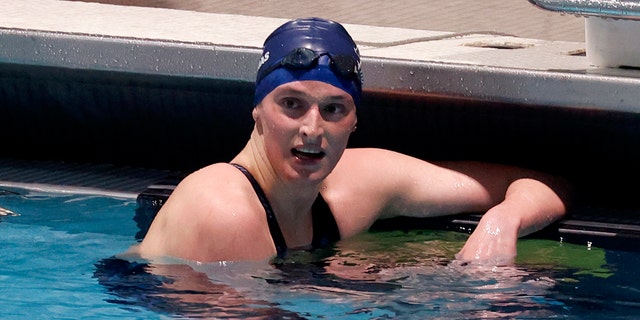
Thomas finished about seven seconds ahead of teammate Catherine Buroker to pick up the victory and set a record at Harvard University's Blodgett Pool.
More records
Thomas' breaking of records wasn't over.
On Friday night, Thomas set a record in the 200-yard freestyle competition on her way to another conference title. She finished in first place with a mark of 1:43.12, setting a record for the event and at Blodgett Pool.
Henig didn’t leave the pool empty-handed either Thursday night.
Henig won the Ivy League Championship in the 50 free. Henig, who is transitioning from female to male and uses male pronouns, defeated Princeton’s Nikki Venema with a time of 21.93.
On Friday, Henig finished third in the 100-yard butterfly, recording a time of 52.82. Venema finished in first at 52.42 and Harvard’s Abigail Carr posted a 52.69.
Not everyone was pleased Thomas was eligible to compete.
#notmitigated
— Martina Navratilova (@Martina) February 18, 2022
It’s not Lia’s fault- the rules stink… #notfair https://t.co/uTn7uYEDmH
Record breaking is one part of the destruction of women’s sport. Some female WRs in athletics are ‘fossilised’ bc of doping - no female can now get near them. The exciting goal of breaking a WR removed for all females. Same now w males taking female records. https://t.co/spKMzL0RGV
— Mara Yamauchi (@mara_yamauchi) February 18, 2022
The most common argument for incorporating trans athletes was "why does it matter? They don't even win." Now that one is dominant, the argument flips to "you're just mad because they're winning." https://t.co/P6wc7q1eao
— Noam Blum (@neontaster) February 17, 2022
ESPN Plus commentator Alex Vispoli claimed he and colleague broadcaster Adam Giardino met with Penn coach Mike Schnur on Thursday and communicated the coach's comments during Thomas' 500 free race.
"He says after what she has been put through, he calls her ‘the bravest kid that he’s ever met. All of the attention that has been bestowed upon her says that she has unbelievable courage,'" Vispoli said, relaying Schnur’s message.
"And he has known Lia for a long time. And the one thing that has always shined through when it comes to Lia is her love of swimming and how much she loves the sport. And that should be one of the main takeaways, and the love that somebody has for a sport for that to be so big in this sport should certainly be appreciated."
Giardino added, "And it’s a sport, swimming, that you really do get to put in the work and see the results. You get to put your head down sometimes. I think a lot of us during the pandemic, I think we found things that are stress relievers. Swimming is certainly something she has taken to and is something that, above all else, she’s incredibly talented at."
Thomas did have some supporters at the pool, too.
An "8 Against Hate" sign was displayed above the pool between flags representing each of the Ivy League member schools, and several athletes were seen wearing shirts with the same slogan.
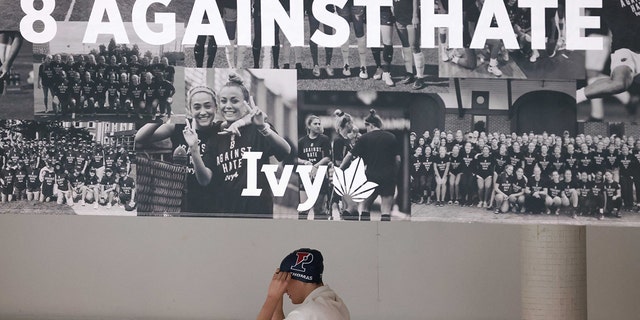
A heated dispute
The question of whether it was fair for Thomas to compete as a transsexual female versus biological females has raged. Thomas has excelled in the pool this season and been pushed into the national limelight following her performance at the Zippy Invitational.
The controversy ultimately reached the NCAA's doorstep last month. College sports' regulatory body released a revised transgender participation policy, stating that eligibility will be assessed on a sport-by-sport basis. If the sport does not have a national governing organization, the NCAA will adopt the International Olympic Committee's (IOC) guideline.
The NCAA said that the rules will go into force in March, beginning with the Division I Women's Swimming and Diving Championships on March 16-19.
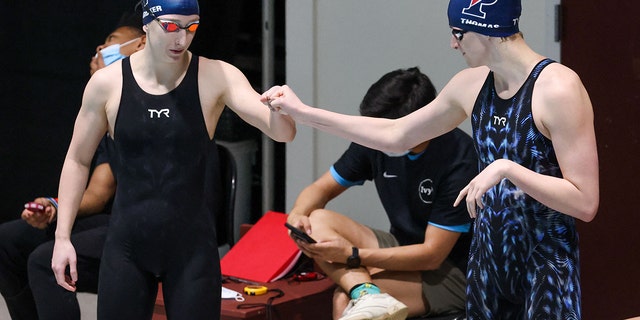
On February 1, USA Swimming amended its guideline, requiring transgender swimmers participating at the top level to have low testosterone levels – half of what Thomas was permitted to compete with – for at least 36 months before being eligible. Thomas' position in the pool was instantly jeopardized.
The NCAA, on the other hand, announced last week that the Administrative Subcommittee of the Committee on Competitive Safeguards and Medical Aspects of Sports (CMAS) decided not to change its testosterone guidance after all, stating that "implementing additional changes at this time could have unfair and potentially detrimental impacts on schools and student-athletes intending to compete in the 2022 NCAA women's swimming championships."
The verdict allowed Thomas to participate in the NCAA Championships.
‘Struggling a lot’
"I’m feeling confident and good in my swimming and all my personal relationships, and transitioning has allowed me to be more confident in all of those aspects of my life where I was struggling a lot before I came out," she said.
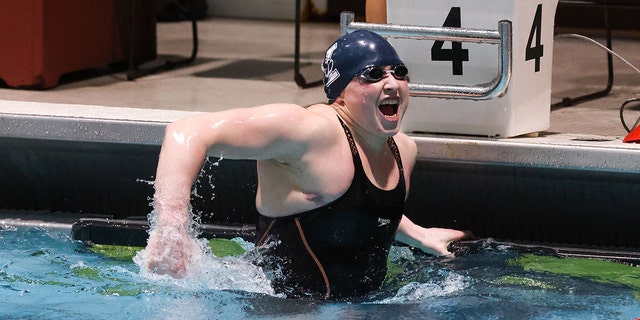
Henig told The Associated Press before the NCAA’s updated transgender participation policy was announced that constant alterations weren't necessary.
"At every level, from elementary to collegiate, trans athletes have been competing for years, and the extremely negative predictions about what will happen to sports have already been shown to be false," Henig said. "In every sport, at every level, there is a wide range of athletic abilities on display. Trans athletes are no different and don’t change this."
Henig is from California and has been competing for Yale since 2018.
Henig has had his breasts removed but wrote in a New York Times column in June he was not taking hormones yet because he wanted to compete in the pool.
"As a student-athlete, coming out as a trans guy put me in a weird position," Henig wrote. "I could start hormones to align more with myself, or wait, transition socially and keep competing on a women's swim team. I decided on the latter.
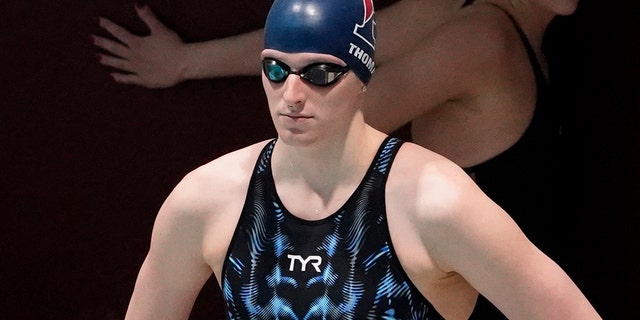
"I value my contributions to the team and recognize that my boyhood doesn't hinge on whether there's more or less testosterone running through my veins. At least, that's what I'll try to remember when I put on the women's swimsuit for the competition and am reminded of a self I no longer feel attached to."
The Ivy League Championships conclude on Saturday with six swimming events: the 1650 free, the 200 backstroke, the 100 freestyle, the 200 breaststroke, the 200 butterfly, and the 400 free.

















